Rebuilding what was once in Fiji
By Jessica Taulaga
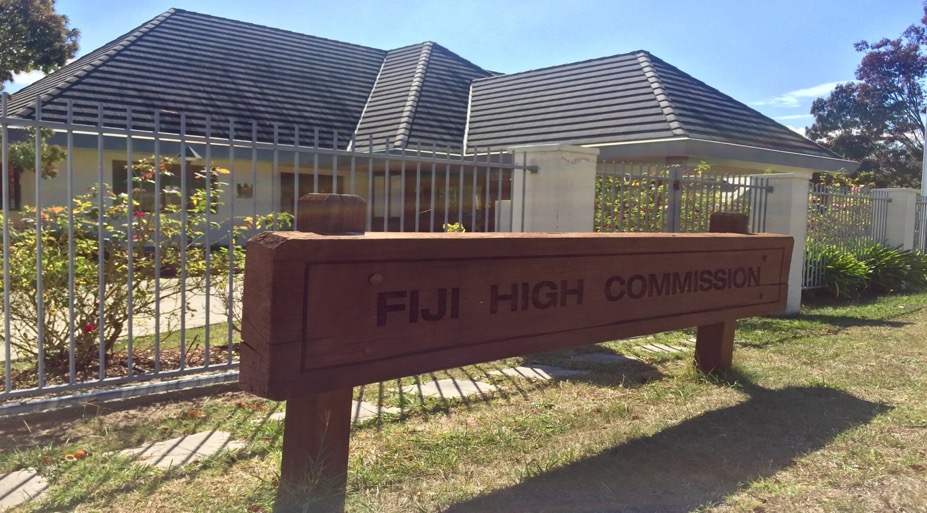
It’s an analogy that would best describe Cyclone Winston: “If you’ve seen a tennis ball and you’ve seen a soccer ball, imagine Fiji as the tennis ball and the cyclone as the soccer ball. That’s how big the depression was. That’s what a category five cyclone is,” says His Excellency Mr Yogesh Punja, the Fijian High Commissioner.
On the 20th February 2016, Fiji was hit by the biggest cyclone recorded in the Southern Hemisphere. A month on and Fiji is still rebuilding the country that once was. But how long will that take?
I find myself standing under four posts, all with significant Fijian patterns braided at the bottom of the stools in coconut fibres. The Fijian Coat of Arms stands proud beside the main entrance, reading “Rerevaka na kalou ka doka na Tui” (Fear God and honour the Queen) and just as I reach for the door, a woman opens it before me to an authentic reception of the High Commission of Fiji in Canberra. Hues of brown, Pacific patterns, ornaments and souvenirs adorn a glass cabinet in the reception room and just as I step towards the corner cabinet, I’m invited to the Fiji High Commissioner’s office.
“I’ll be there soon,” Mr Yogesh Punja says when I enter his office. There sits a table that has all the miniature flags of the South Pacific, from Samoa, Tonga and Papua New Guinea, to French Polynesia and Tahiti, amongst others. With the national flag of Fiji having it’s own stand, accompanied by two tikis on either end of the table, the office is decorated by traditional weapons on the walls and a framed picture of the Prime Minister of Fiji.
Mr Punja, who came into office in April 2015 was born and raised into a business-oriented family. Upon retiring from their family business, Punja, which is also going on to celebrate its 80th anniversary, Mr Punja thought it was time to give back to his country. As he sits with me, with the damages of the cyclone printed in papers in front of him, he recalls everything without having to read it.
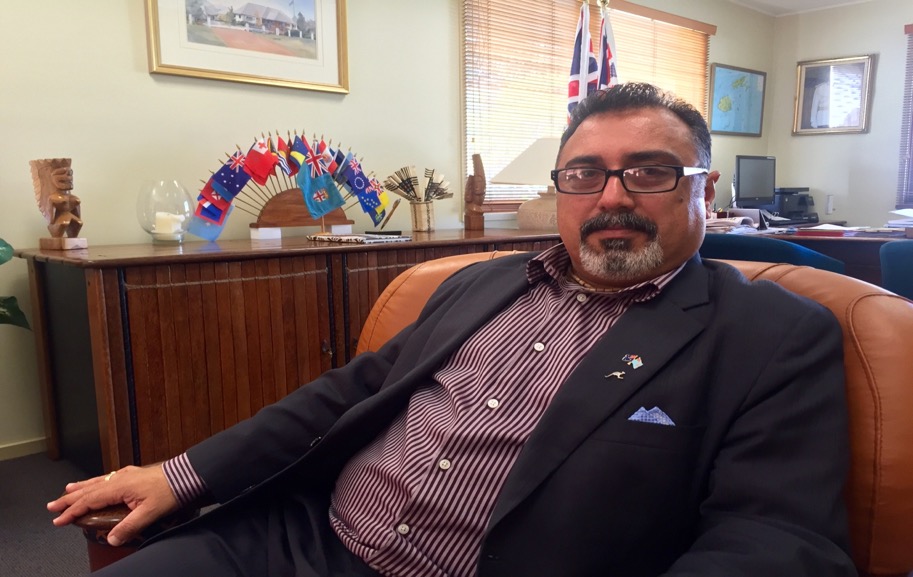
“I was born in Lautoka, Fiji,” he says. “And I’ve seen a couple of cyclones myself. See, you normally see with your eyes the physical damage and that’s what you understand what has happened in Fiji. But when you go a little bit deeper than that, it’s about the scars that are left behind. The psychological trauma is big; you know seeing your family die before you.”
Mr Punja reflects for a short few seconds and though he takes great pride in being an ambassador for his country, his love towards his country is also undeniable. He tells me a story of an artist who survived the cyclone, capturing and painting his feelings and sentiments when it was over.
“He said ‘when the cyclone came, we were praying that we’ll all be safe. We all held hands and we prayed and then when we were inside the house, we saw the roof going and the veracity of the cyclone outside.’ They could see what’s happening around them and they said their final prayer; they were ready to die.”
It is only in this moment, this brief but long moment, that His Excellency Mr Yogesh Punja, this confident and bold man, is at loss for words. The seconds seem long and the stories seem to weigh heavy on the High Commissioner. Despite being over a month ago, the scars of the cyclone still remain.
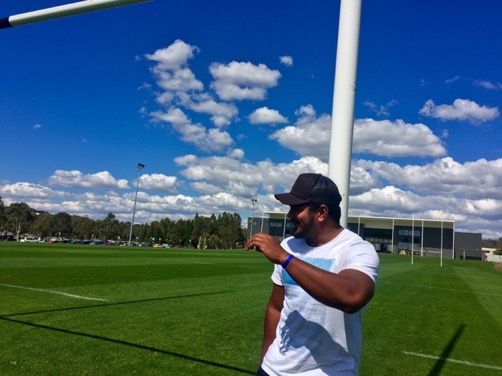
“Life back in Fiji was good,” he says. “Because most of my family lives there, none of them live abroad. I loved the people, they’d help each other out in times of need. If someone needed a helping hand, or if someone was moving, we would help out and all the boys in the neighbourhood would help out. If there was a fundraiser, we would all chip in and help each other out.”
With wind gusts as strong as 330 kilometers an hour, Cyclone Winston had no mercy on Fiji; recorded as one of the biggest cyclones ever to hit the Pacific. Fiji has over 300 islands, and Koro Island, which sits between the two main Islands of Viti Levi and Vanua Levu, was the most affected island in the wake of the cyclone. It was only a week before when villagers had homes to go to at the end of the day, a bed to lay their heads to rest, belongings and valuables, only for it to be gone in one night.
The High Commissioner had prepared for high winds, keeping up to date and tracking the cyclone on his phone, but did not see a cyclone as strong as Winston to hit Fiji shores. “Who would expect that a category five cyclone will come to us?” Mr Punja asks.
Mesulame Dolokoto also didn’t expect such a disaster will hit Fiji shores.
“Looking at the pictures, it hurts knowing what the people back home are facing, especially my mum’s village,” he says. “Her village in Koro Island was smashed by the cyclone and all the people there were relocated to their families in Suva, the mainland.”
The Fijian Government states [PDF] that the recent death toll stands at 44, with over 300,000 people affected from the disaster – which is 40 per cent of the country’s population – and many schools are either destroyed or used as evacuation centres for families who lost their homes. Because Fiji is vulnerable to tropical cyclones and climate change, a disaster management response team is put in place, sending through the latest updates, information and death tolls.
“We are a remote country; you hear what you see on media,” Mr Punja explains. “Fortunately though, Australia responded very quickly and it was over a week that we were able to take a proper assessment of what’s happened in the islands. It was an immediate response from Australia.”
In light of Cyclone Winston, the Australian Government provided Fiji with a total of $15 million to help manage the devastation of the cyclone, in the form of transport of medical supplies and evacuation and food, amongst others. Australia is Fiji’s largest contributor regarding international relief, especially towards Cyclone Winston.
“That’s part of Australia’s initial response,” Mr Punja says when asked if the $15 million will cover most damages caused by Winston. “It’s just a Band-Aid on their hand, not the surgery. That’s afterwards.”
However, more than money, the people of Fiji need shelter, food, medicines and water. But often with news, people will forget and another breaking story will come as fast as another goes and the High Commissioner is well aware of that. But the rebuilding process will take longer than the moments Cyclone Winston made headlines. The damages were far more horrendous than photos could do justice.
Mr Punja speaks with conviction, determination and he knows what the next best step is for Fiji.
“This rebuild will take about a decade, ten years to get it right,” he explains. “People don’t realize that. With Winston out of the minds of people now and another issue on their mind, suddenly, people forget. We knew that. So part of our planning here estimated that between three to four weeks, people will forget and a new issue will be on the agenda; forgetting about Winston. So we scheduled events for the next six months.”
It’s been three to four weeks since February 20th and since then, the High Commissioner’s workload has become heavier, organizing meetings with individuals and companies willing and wanting to lend a hand towards Fiji.
With a phone in one hand swiping through his gallery, Mr Punja shows me who he’s met the past couple of weeks and days, who he’s associated with and what these people are contributing towards Fiji. From NRL to Rugby Union, to universities and ministers, the High Commissioner is doing his best to represent and help the people of Fiji.
Among these photos and visits, Mr Punja made a visit to Victoria University in Melbourne, Australia, where 400 beds, desks and mattresses were loaded into four forty-foot containers, en-route to Fiji. These came from a student village that was planning on closing down, until someone proposed sending the remains to those who need it most.
Former NRL player, Petero Civoniceva, also met with the High Commissioner of Fiji to discuss temporary tin pop-up homes, for those who lost their homes in Fiji. The Fijian-born football star was in Fiji at the time to propose his ideas, providing both security and privacy to those who who have no home because of the cyclone.
So how can an ordinary person help? “Skip a lunch,” suggests Mr. Punja. With a recent meeting with Coles, buying goods online will soon allow you to purchase $20 worth of goods delivered to Fiji. “So you pay for it and Coles puts it together and ships it to Fiji. An ordinary person could skip a lunch, use that $20, buy a packet and it goes straight to the Fiji Appeal.”
Even in the tourism sector, Mr Punja met with the Minister of International Development of the Pacific, along with the Chairman of Fiji Tourism Board, hoping to push people to continue visiting Fiji.
Despite staggering losses, Fiji is still up and running. It’s still the same island paradise destination for newlyweds and families, it’s still the friendly island and it’s still capable of hosting tourists from around the world.
“We need to let them know that Fiji is back!” Mr Punja says, “Fiji is still in business. We don’t want people to cancel their flights because you’ll be putting food on the table for people.”
Cyclone Winston is the worst that Fiji has experienced but as a nation, but it has only made them stronger.
“When disaster comes, it doesn’t look at the colour, skin or religion because it affects everyone,” Mr Punja says.
While Mesulame Dolokoto notes that his family was affected in the village, the cyclone brought people from afar to help those who were left with nothing.
“People from the mainland were bringing groceries for people,” he says. “Even though they’re not related, they still brought groceries and lent a hand, so it does bring us together.”
In spite of it all, Fiji is and always will be home to both Mesulame and the High Commissioner himself, His Excellency Mr Yogesh Punja. As Mr Punja puts it: “Fiji is always home for me.”
I leave his office, content and grateful for what I have and for the country I live in. Whether it be here in Australia or Fiji, home is definitely where the heart is and regardless of a natural disaster, at least we’re glad to call something or a place; home.
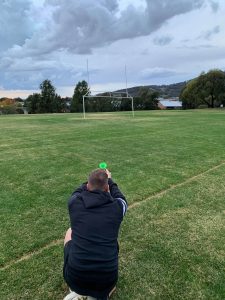
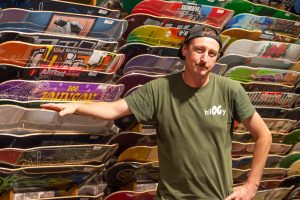
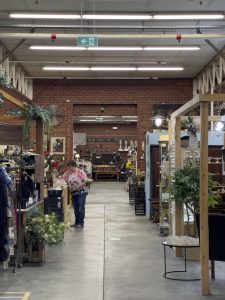
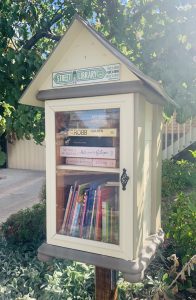
Rebuilding What Was Once in Fiji – State of Mind
Jun 20, 2016 at 1:06 pm[…] Rebuilding what was once in Fiji […]